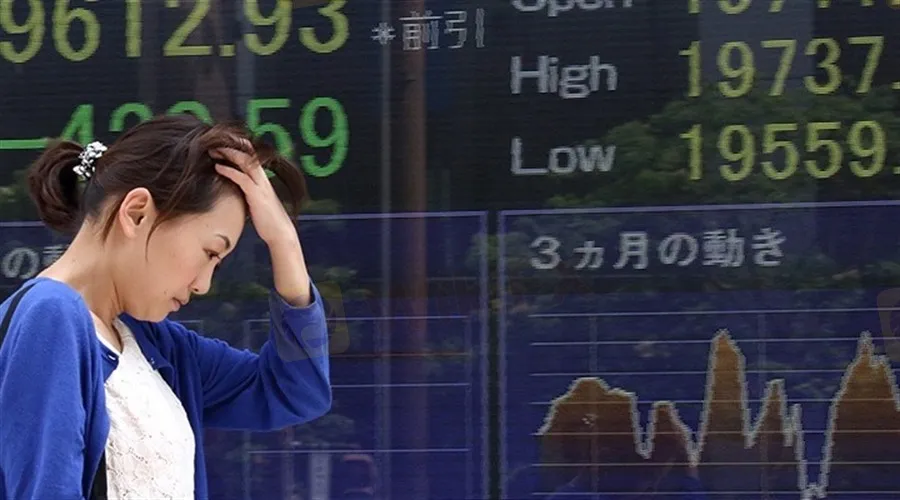简体中文
繁體中文
English
Pусский
日本語
ภาษาไทย
Tiếng Việt
Bahasa Indonesia
Español
हिन्दी
Filippiiniläinen
Français
Deutsch
Português
Türkçe
한국어
العربية
Mastering Forex Trading Psychology
Abstract:Successful forex traders know how to manage and remove their emotions from trading.

Successful forex traders know how to manage and remove their emotions from trading. This outcome is achievable by overcoming greed, habitually following risk management strategies, and employing a consistent trading plan. Identifying moments of emotional trading, detaching, and reframing back into a strategic mindset can be challenging.
That is why our team has created this Forex Trading Psychology Guide on how to manage and master your emotions when trading forex. Learn to minimize trade errors, mitigate your risk exposure and what guidelines you should follow for developing a long-lasting risk management strategy. Our core lessons include:
The Basics of FX Trade Psychology
Understanding Fear Of Missing Out
How to Overcome Greed
Risk-to-Reward Ratio
Tapping Into a Successful Trading Mindset
Managing Forex Trading Psychology
What is trading psychology, and why is it important? Trade psychology is a broad term that encompasses the emotions and behaviors of traders, including excitement, impatience, anxiety, greed and fear — as with many professions, mastering the environment and psychology is a process that takes time and commitment.
Trade Psychology is vital because it is your mind that determines how you react to trade outcomes, respond to volatile market movements and also tests a traders resolve for using their management strategy. Unfortunately, most forex market participants experience financial losses, resulting in far more negative than positive psychological effects.
The three most common causes of traders becoming their worst enemy include:
Martingale or doubling down losing trades (when fear turns to greed).
Closing positions before price reaches the target (fear of financial loss).
Participating in FOMO trading (fear turns into greed).
The financial markets do not care about your emotions. Those traders who can effectively manage both positive and negative aspects of trade psychology are best suited to handle the rigorous volatility of foreign exchange markets.

Disclaimer:
The views in this article only represent the author's personal views, and do not constitute investment advice on this platform. This platform does not guarantee the accuracy, completeness and timeliness of the information in the article, and will not be liable for any loss caused by the use of or reliance on the information in the article.
Read more

The president of @Liberland, @Vít Jedlička come on stage, dialogue on trading security.
The 2025 WikiEXPO Hong Kong Station is about to grandly open. the president of @Liberland, @Vít Jedlička come on stage, dialogue on trading security.

Countdown: 1 day.WikiEXPO2025's first stop, Hong Kong, is about to open.
⏰ Countdown: 1 day. WikiEXPO2025's first stop, Hong Kong, is just tomorrow. Focus on transaction security and explore new investment opportunities. ???? Get ready to start now. See you tomorrow.

JustForex vs JustMarkets: A Comprehensive Comparison in 2025
Selecting the right forex broker can make the difference between trading success and frustration for most investors, especially retail investors. As retail traders gain unprecedented access to global markets, the choice between platforms like JustForex and JustMarkets becomes increasingly significant. Both brokers offer some shining features within the forex and CFD trading space, but their approaches differ in some areas.
Swissquote Review 2025: Live and Demo Account to Explore
Swissquote is a unique online broker with a solid banking background in Switzerland. As a forex-focused platform, it provides one of the most respective range in the industry, over 80 currency pairs in major, minor and exotic. Notably, Swissquote offers different trading conditions for traders from Switzerland, Europe, Middle East, Hong Kong, South Africa, and other regions, and traders at Swissquote can enjoy the benefit of trading with its well-regulated brand and entities. Besides, Swissquote offers excellent research offerings along with its product offerings.
WikiFX Broker
Latest News
How Crypto Trading Transforms FX and CFD Brokerage Industry
UK would not hesitate to retaliate against US tariffs - No 10 sources
FCA Warns Against 10 Unlicensed or Clone Firms
CySEC Warns Against 14 Unlicensed Investment Websites
Top Currency Pairs to Watch for Profit This Week - March 31, 2025
Will natural disasters have an impact on the forex market?
Philippines Deports 29 Indonesians Linked to Online Scam Syndicate in Manila
Navigating the Intersection of Forex Markets, AI Technology, and Fintech
Exposed: Deceptive World of Fake Trading Gurus – Don’t Get Fooled!
AI-Powered Strategies to Improve Profits in Forex Trading
Currency Calculator







